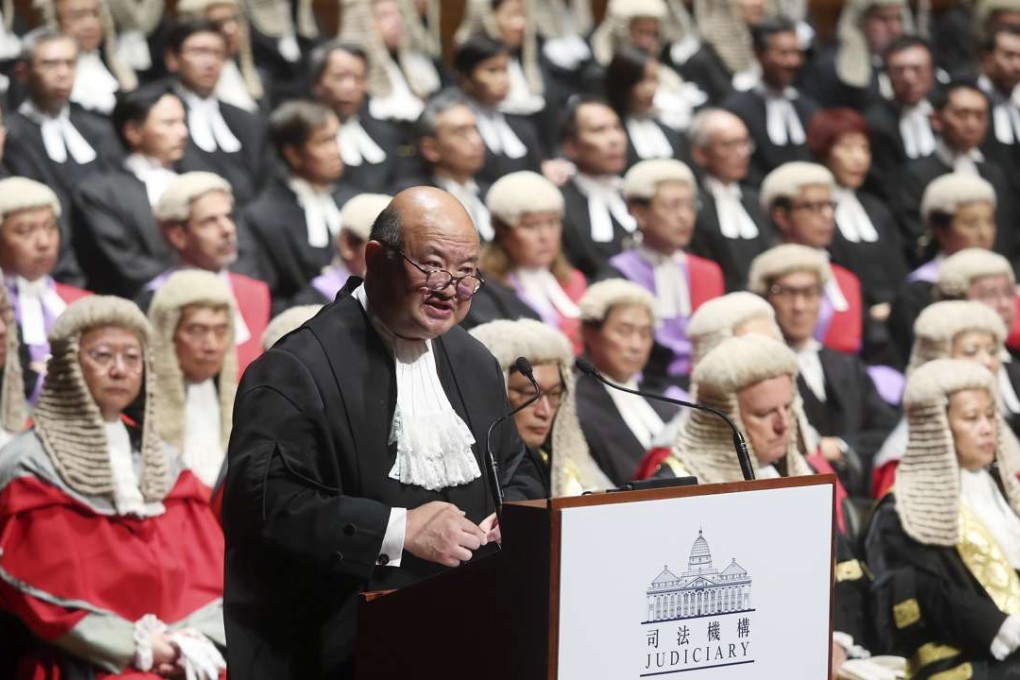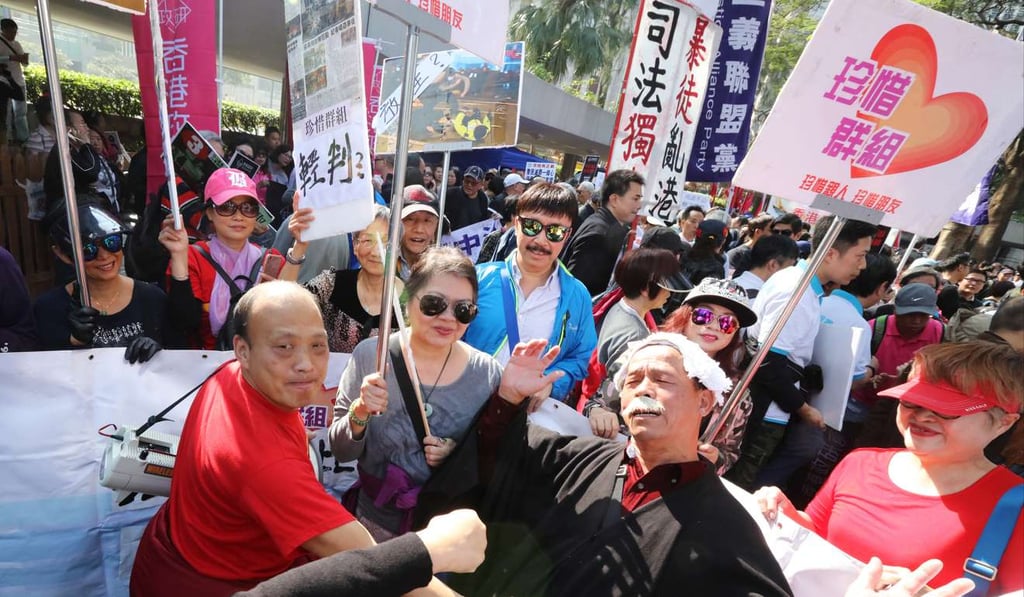Beijing throws the book at Hong Kong’s foreign judges
The jailing of seven policemen for beating up a protester has led to an outpouring of anger at the Briton who passed sentence and reopened debate about the number of expats in the court system

In her book Justice without Fear or Favour published in 1999, former magistrate Marjorie Chui, the first Chinese woman on the bench in Hong Kong, launched a thinly veiled attack on the judiciary’s then heads, who were said to have allowed expatriates to continue to dominate the upper echelons of the court system despite the city’s imminent return to Chinese rule in 1997.
Almost two decades on, while similar sentiments occasionally surface in postcolonial Hong Kong, they have been eclipsed by a recent outpouring of grievances from across the border against the purportedly slow pace of localisation of judges here.
The hostile rhetoric, coinciding with Beijing’s assertion of its tough stance against the former British colony during the annual “two sessions” – meetings of the Chinese People’s Political Consultative Conference and National People’s Congress – contrasts with some regional rivals’ pronounced openness to enlisting the help of top judicial minds from other countries in order to advance their justice systems.
Tian Feilong, an associate professor at Beihang University Law School in Beijing, argued that the two-year prison terms were too harsh.

“[Foreign judges] cannot in particular understand the ‘one country’ connotation and the legal interest issues in Hong Kong Basic Law,” Tian told the Post.
The academic, also a deputy director of the institution’s One Country Two Systems Legal Studies Centre, said “local” judges might show a different inclination towards the same case.